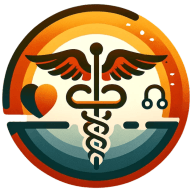The healthcare landscape is evolving rapidly, and medical directors are at the forefront of this change. They are the ones who must navigate the complexities of the healthcare system, ensuring quality patient care while managing the business aspects of their organizations. This blog post delves into the importance of leadership training for medical directors, providing a comprehensive guide to the skills and knowledge required for success in this challenging role.
The Role of a Medical Director: A Broad Overview
Medical directors play a critical role in healthcare organizations. They are responsible for overseeing clinical operations, ensuring compliance with healthcare regulations, and driving quality improvement initiatives. Their role extends beyond clinical duties to include administrative tasks such as budgeting, staff management, and strategic planning.
In this multifaceted role, medical directors must balance their clinical expertise with strong leadership skills. They must be able to guide their teams through the complexities of the healthcare system, fostering a culture of continuous improvement and patient-centered care.
Leadership training is, therefore, a crucial aspect of a medical director's professional development. It equips them with the skills to lead effectively, manage change, and drive organizational success. This blog post explores the key components of medical director leadership training, providing insights into how it can enhance the performance and effectiveness of medical directors.
The Importance of Leadership Training for Medical Directors
Leadership training is a critical component of professional development for medical directors. It equips them with the skills to lead their teams effectively, manage change, and drive organizational success.
Leadership training for medical directors typically covers a range of topics, including strategic planning, financial management, quality improvement, and team building. It also focuses on developing soft skills such as communication, problem-solving, and decision-making.
Through leadership training, medical directors can enhance their ability to navigate the complexities of the healthcare system, drive quality improvement initiatives, and foster a culture of patient-centered care. They can also improve their ability to manage their teams effectively, ensuring that they are able to deliver high-quality care to patients.
Key Components of Medical Director Leadership Training
Medical director leadership training typically includes a range of components designed to enhance the skills and knowledge of medical directors. These components often include modules on strategic planning, financial management, quality improvement, and team building.
Strategic planning training equips medical directors with the skills to develop and implement strategic plans for their organizations. This includes setting goals, identifying key performance indicators, and monitoring progress towards these goals.
Financial management training provides medical directors with an understanding of the financial aspects of healthcare management. This includes budgeting, financial analysis, and cost control.
Quality improvement training focuses on equipping medical directors with the skills to drive quality improvement initiatives. This includes identifying areas for improvement, developing and implementing improvement plans, and monitoring the effectiveness of these plans.
Team building training enhances the ability of medical directors to lead their teams effectively. This includes developing effective communication skills, fostering a positive team culture, and managing conflict.
The Impact of Leadership Training on Medical Directors
Leadership training can have a significant impact on the performance and effectiveness of medical directors. It can enhance their ability to lead their teams effectively, manage change, and drive organizational success.
Through leadership training, medical directors can develop a deeper understanding of the complexities of the healthcare system. They can enhance their ability to navigate these complexities, ensuring that they are able to deliver high-quality care to patients.
Leadership training can also enhance the ability of medical directors to manage their teams effectively. They can develop stronger communication skills, foster a positive team culture, and manage conflict more effectively.
Furthermore, leadership training can enhance the ability of medical directors to drive quality improvement initiatives. They can develop a deeper understanding of quality improvement methodologies, enabling them to identify areas for improvement and implement effective improvement plans.
The Future of Medical Director Leadership Training
The future of medical director leadership training is likely to be shaped by the ongoing evolution of the healthcare landscape. As healthcare becomes increasingly complex, the role of the medical director is likely to become even more multifaceted.
This will require medical directors to continually enhance their skills and knowledge through ongoing leadership training. They will need to stay abreast of the latest developments in healthcare management, quality improvement methodologies, and leadership theories.
The future of medical director leadership training is also likely to be influenced by advances in technology. Online learning platforms, virtual reality, and artificial intelligence are all likely to play a role in the delivery of leadership training for medical directors.
These technologies can provide medical directors with flexible, personalized learning experiences that can enhance their skills and knowledge. They can also provide them with opportunities to practice their leadership skills in a safe, controlled environment.
Conclusion
The role of the medical director is critical in today's complex healthcare landscape. They are responsible for overseeing clinical operations, ensuring compliance with healthcare regulations, and driving quality improvement initiatives.
Leadership training is a crucial aspect of a medical director's professional development. It equips them with the skills to lead effectively, manage change, and drive organizational success.
The future of medical director leadership training is likely to be shaped by the ongoing evolution of the healthcare landscape and advances in technology. As such, medical directors will need to continually enhance their skills and knowledge through ongoing leadership training.
Wrapping Up: The Significance of Leadership Training for Medical Directors
Leadership training is a critical component of professional development for medical directors. It equips them with the skills and knowledge to navigate the complexities of the healthcare system, lead their teams effectively, and drive organizational success. As the healthcare landscape continues to evolve, the importance of leadership training for medical directors is only set to increase. By investing in leadership training, medical directors can enhance their performance and effectiveness, ensuring that they are able to deliver high-quality care to patients.

